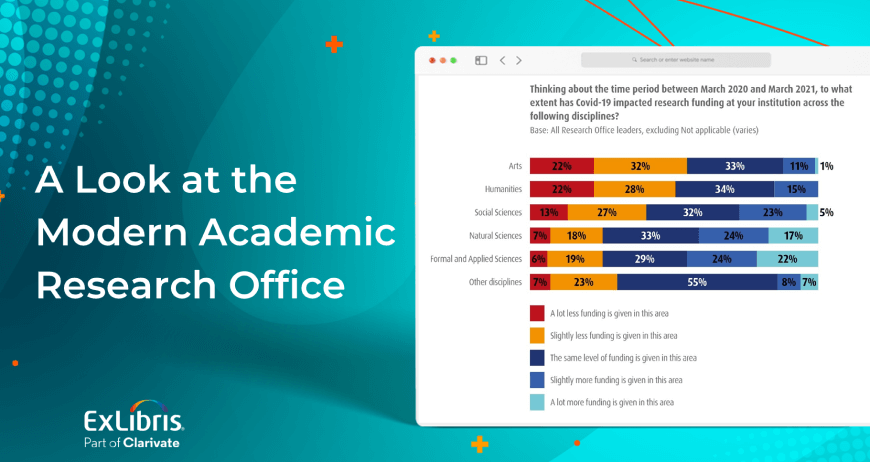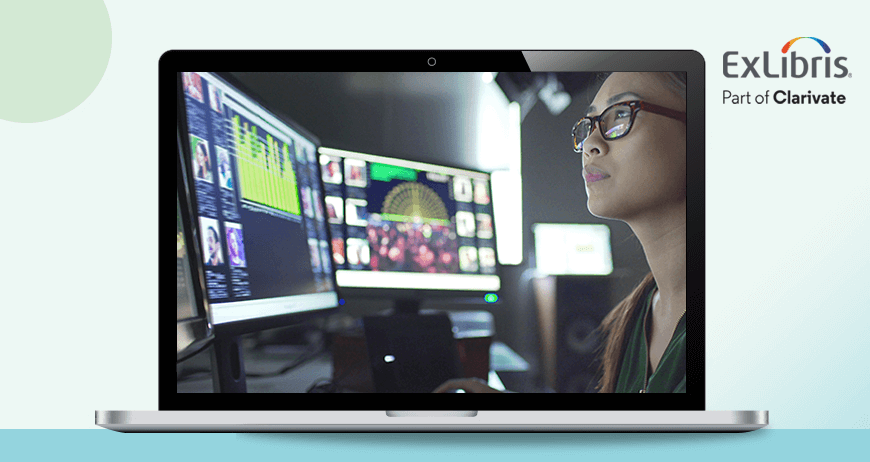The ongoing global pandemic continues to impact how research in higher education is supported and funded. Priorities have continued to shift, with complex challenges and opportunities arising from the need to adapt to a new reality. And research departments, for the most part, are indeed successfully developing new strategies to secure funding, maximize smaller budgets, and compete for talent.
In order to get a clear idea of how researchers and university Research Offices are experiencing the latest trends in academic research, Ex Libris commissioned a study by Alterline, an independent research agency. The results are found in their 2021 report, entitled Supporting Academic Research: Understanding the challenges.
The paper includes findings from a survey of over 400 researchers and Research Office leaders across the United Kingdom, the United States and Australia, in an array of disciplines. Two similar studies were conducted in 2019 and 2020, providing additional insight into how the research landscape may have changed over time.
Key Findings
The report highlights eight primary findings, backed by careful analysis of the survey results. They can be summarized as follows.
-
Trends in the search for research funding
The burden of finding research funding is increasingly falling on researchers – and they find it among their most difficult tasks. On the other hand, Research Offices generally prioritize providing researchers the support they need. Also noteworthy is the impact of Covid-19 on the levels of funding available for research in STEM and non-STEM fields.
-
Showcasing research expertise
Academic institutions are becoming more active in showcasing their research through online profiles and portals. The trouble is that many official researcher profiles are only partially up to date. This may be the result of researchers paying more attention to profiles they maintain on external websites.
-
Demonstrating research impact
Researchers have begun placing greater emphasis on alternative metrics – most notably, media mentions – for measuring the impact of their research. This trend was already evident in the past, but the Covid-19 pandemic has intensified the focus on societal impact as an indicator of the influence of academic research on public policy.
-
Time and resources devoted to administrative tasks
Over half of the researchers surveyed reported spending 30% or more of their time on their administrative tasks. Research Office leaders are finding it challenging to provide them support, however, as their organizations are also suffering from limited resources and time.
-
Interdisciplinary collaboration
Around a quarter of Research Office leaders see facilitating collaboration as one of their priorities. Yet, only 27% of researchers are satisfied with the level of support they are receiving in finding collaborators during the Covid-19 pandemic.
-
Research Office and library collaboration
Research Office leaders have noted an increase in their collaboration with institutional libraries over the past year. The libraries are seen as significant partners in managing research, especially in relation to open access compliance.
-
Researcher expectations
Almost two thirds of researchers are generally satisfied with the www.slaterpharmacy.com support they receive from their institution’s library, but their expectations have increased this year. On the other hand, their expectations from the Research Office remained the same.
-
Remote work
Almost half of Research Office leaders polled categorized work disruptions caused by the Covid-19 pandemic as “high.” While researchers find themselves fairly satisfied with the support they receive for remote work, they also expressed a need for more assistance with finding funding, identifying collaborators, and conducting research.
In coming posts, we’ll dive deeper into the study’s main findings, with a focus on the impact – both positive and negative – of pandemic-era changes in the higher education landscape.
For more details, read the full study here.










